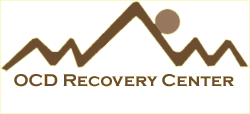
Handling Difficult Times In OCD & Spectrum Disorders Recovery
By Dr. Christian R. Komor
Clinical Health Psychologist
Mind/Body Consultant Services of Grand Rapids
OCD and it's associated disorders are chronic neurobehavioral problems which appear to have genetic origins and learned behavioral components. While medication and cognitive-behavioral psychotherapy can have a significant impact on OCD up to 25% of persons improve very little. For others, improves comes very slowly and painfully. With such a difficult disorder, crises and setbacks are normal. As the person continues in therapy they need to develop self-care behaviors that work for them, remember these behaviors (via journaling) and then repeat them when in crisis. Below are some general ideas that can be helpful to attend to when an adult, or child with OCD, Body Dysmorphic Disorder, Hypochondriasis or Trichotillomania is having a difficulty on their journey.
- Above all RELAX. OCD can be painful, but very, very seldom causes permanent physical or mental harm to the person. Since OCD results from high anxiety it always makes sense to continually remind oneself to relax. This includes the caregivers and helper involved with the person.
- Consider a temporary increase in medication, augmentation with another pharmacological agent, addition of an antianxiety agent (benzodiazepine, etc.) or change in medication.
- Reduce pressures related to life change by:
- Decreasing expectations.
- Following common routines.
- Reducing life stressors. (Cancel a few, but not all, activities.)
- Remind yourself that you control speed and direction of treatment. Slow down if you need to.
- Increase physical activities which are not OCD-laden such as:
- Aerobics
- Sports
- Recreation
- Walks
- Bike rides
- Special practices such as yoga, qigong, etc.
- Encourage a "Just be and don't think." approach on a continual basis. OCD lives in the mind. Redirect the person to experiences versus thoughts.
- Change the setting. Take a day off and go to the beach, grandparents, visiting friends, hiking, etc. Make note of positive changes experienced and take these experiential learning's back to the regular routine.
- Remember that anxiety drive or fuels OCD. Find ways of relaxing actively and deliberately such as:
- Back rubs
- Hot baths
- Breathing techniques
- "Relaxation dots" and ques
- Special practices such as biofeedback, autogenics, meditation, guided imagery
- Encourage the person to feel and express their feelings (tears, anger, fear). Try and redirect attention away from:
- Ruminations and obsessive thoughts
- Verbal reassurance seeking
- Analyzing the OCD
- Focus on the positive progress and behaviors that you have achieved rather than the OCD.
- "Overperform" the ritual in order to drive it into extinction.
- Provide rewards for any and all progress.
- For obsessional slowness and getting "stuck":
- Thought stopping ("STOP")
- Thought backtracking to the present
- Rubber band technique
- Demonstrate behavior
- Focus on motor intention and sensory-motor cues while performing ritual in slow motion
* Always go back to your recovery journal/notebook. Look and see what has worked for you in similar situations before.
Privacy Policy | Terms of Use | Accessibility Statement




